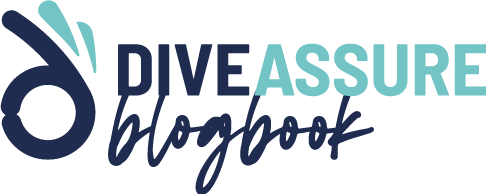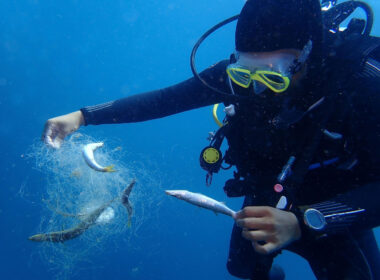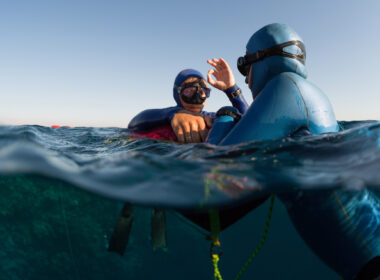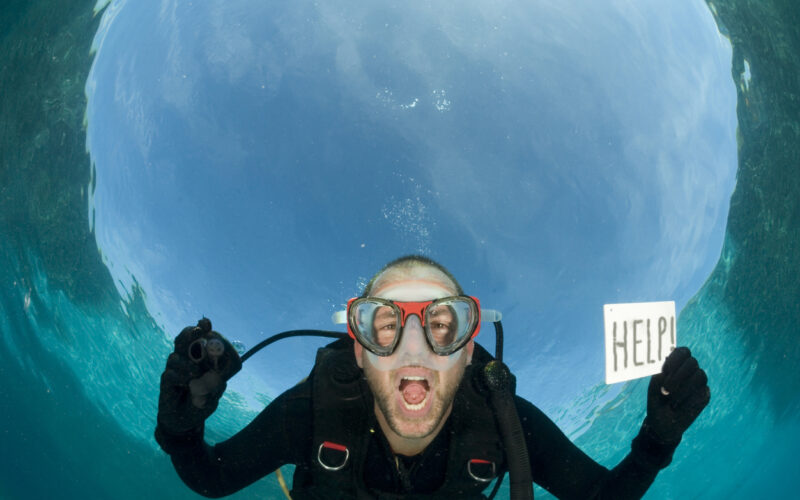Although we all enjoy scuba diving and freediving with tranquility and peace of mind, it doesn’t come without its stress factors. After all, we are descending into the deep dark unknown, reliant on gear that may have been maintained by someone we don’t know. Additionally, the gear itself and factors that can happen during a dive, such as high waves, strong currents or certain fish encounters can be a reason for added anxiety. The worst is the thought process and all the what-ifs and maybes, as humans we like to imagine events that haven’t even occurred yet and work ourselves up about them! This is why we must prepare ourselves and do all we can to start off on the right fin.
Here are some tips on how to reduce predive stress:
1. Proper Preparation
Before embarking on any dive, adequate preparation is essential for reducing predive stress and ensuring a safe underwater experience. Preparation allows us to feel in control, we can get organized and consider step after step what is needed to execute the dive.
Start by meticulously checking all diving equipment, ensuring it’s in optimal condition and properly assembled. There is more to just getting the equipment ready, you also need to ensure that you are mentally prepared. For some people, it helps to talk to a dive buddy and plan the dive with them, including depth, duration, and emergency procedures, which helps familiarize oneself with the upcoming dive and instills confidence.
Discuss the dive with your dive guide, to address any concerns or uncertainties. Assessing personal readiness involves evaluating physical and mental factors such as fatigue levels, hydration, and emotional state.
By prioritizing thorough preparation, divers can enter the water with a sense of confidence, knowing they have taken proactive steps to mitigate potential risks and maximize the enjoyment of the dive ahead.
2. Mindfulness Techniques
Whether you are a scuba diver or freediver, techniques such as breathing exercises, meditation and/or visualization techniques can truly help get you focused and mentally ready for the dive ahead. Begin by practicing deep breathing exercises to center the mind and calm the body’s nervous system. Engaging in mindful meditation allows divers to cultivate present-moment awareness and let go of distracting thoughts or worries. Visualization techniques, where divers vividly imagine themselves navigating successful dives with ease and confidence, can further bolster mental resilience. By focusing attention on the sensations of breathing, the sights and sounds of the environment, and the feeling of buoyancy in the water, divers can foster a sense of mental calm and tranquility before submerging. Embracing mindfulness not only promotes relaxation but also sharpens focus and enhances situational awareness, crucial elements for a safe and enjoyable diving experience.
Incorporating mindfulness techniques into predive routines can significantly reduce stress and enhance mental preparedness.
3. Positive Visualization
Through the practice of visualization, you can mentally rehearse each step of your dive, from descending into the depths to encountering marine life and safely resurfacing. By vividly imagining yourself executing precise movements, maintaining buoyancy, and navigating potential obstacles with ease, you cultivate confidence and familiarity with the dive environment. Visualizing overcoming challenges, such as strong currents or low visibility, prepares you to adapt and react calmly in real-life scenarios. Additionally, incorporating sensory details like the feel of the water against your skin and the sight of vibrant coral reefs helps to immerse you in the experience and create a positive emotional connection to the dive. By harnessing the power of visualization, divers can effectively prime their minds and bodies for a successful and enjoyable underwater adventure.
Visualizing success is a powerful tool for reducing predive stress and enhancing performance underwater, especially improving your breath hold in freediving or air consumption rate in scuba diving.
4. Communication and Support
Effective communication and supportive relationships with dive buddies and instructors play a crucial role in alleviating predive stress and enhancing safety. Before diving, openly discussing concerns, expectations, and dive plans with your team fosters a sense of mutual understanding. Clear communication ensures that everyone is on the same page regarding emergency procedures, signals, and contingencies, reducing uncertainty and anxiety. Additionally, knowing that you have the support of your dive buddies can provide a reassuring sense of security, knowing that help is readily available if needed. Encouraging each other, sharing experiences, and offering reassurance can help calm nerves and boost confidence before entering the water. By fostering a culture of open communication and support within the diving community, you can feel more empowered to manage stress and enjoy your underwater adventures to the fullest.
5. Relaxation Techniques
Incorporating relaxation techniques into predive preparations can effectively reduce stress levels and promote a calm state of mind before entering the water. Progressive muscle relaxation involves tensing and then releasing each muscle group in the body, helping to release physical tension and induce a sense of relaxation. Guided imagery allows you to mentally escape to tranquil environments, such as serene beaches or peaceful underwater landscapes, fostering a sense of calmness and serenity. Listening to soothing music or nature sounds can also help quiet the mind and create a peaceful atmosphere conducive to relaxation. By dedicating time to practice relaxation techniques before diving, you can alleviate anxiety, quiet mental chatter, and cultivate a sense of inner peace, ensuring you are mentally and emotionally prepared for a safe and enjoyable dive experience.
It is important to get on top of pre-dive stress to ensure that you can truly enjoy your dive. If you allow stress to manifest it could cause a spiral of events that go wrong during your dive. Whether it be panicking in a certain, avoidable situation, or not being able to meet your typical breath-hold times. Experiment with these different techniques and see what works best for you, the important thing is that you feel calm, relaxed, and confident.
